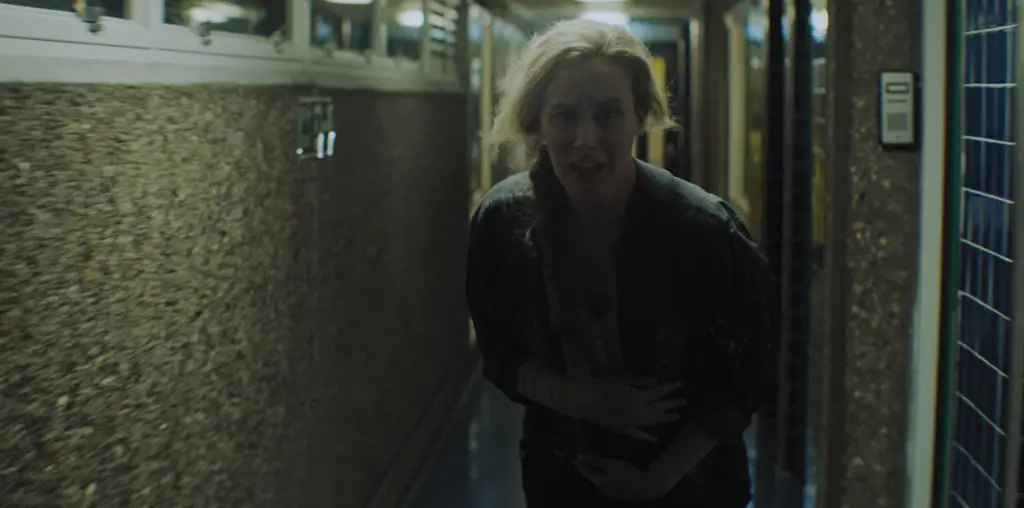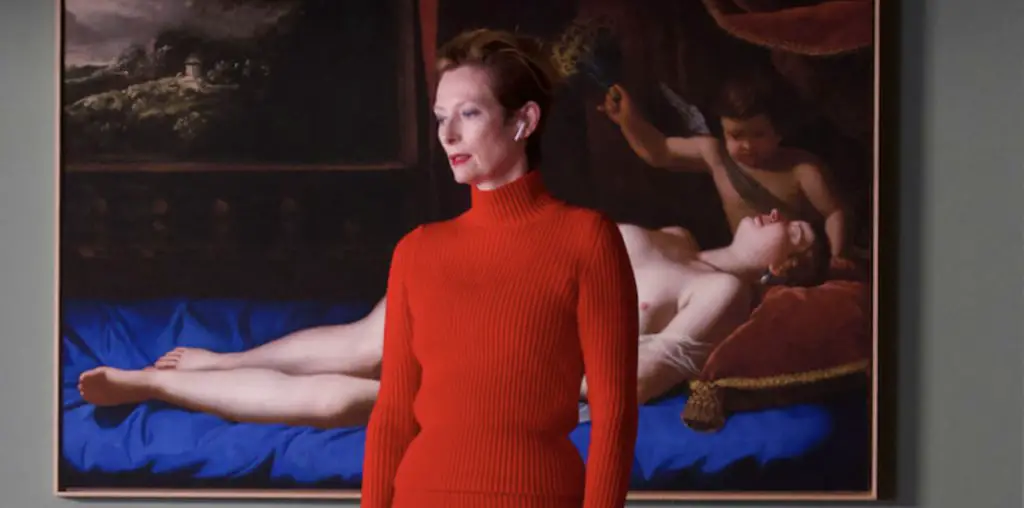
SPOILER ALERT!
“Hadewijch,” the cold, grim new movie from French auteur of coldness and grimness Bruno Dumont, has a great lead performance, an admirable commitment to atmospheric consistency, and a final half-hour that’s pretty stupid.
The titlem, which appears at the NYFF after screening at Toronto, comes from the name of the convent where we meet our main character, Céline (Julie Sokolowski). She’s a teenager from a very wealthy family — her father’s a French minister, and they live in a stunning home in Paris — but Céline cares nothing for worldly goods and pleasures because, you see, she loves Christ. She doesn’t just love Christ, she loves Christ. In fact, she loves Him so much that the nuns decide to kick her out of the convent for loving Him too much.
When we first meet her, Céline’s grossly beatific expression makes her seem dull, almost bovine. Once out of the convent, however, she’s thrust back into modern society and the chafe of her religious fervor against her surroundings makes the character come alive. Sokolowski is credibly vulnerable as the psychotically devout young woman. Her face conveys childlike innocence and confused yearning.
Visually, the film is austere. The rainy woods and lawns of Hadewijch contrast with the dead stone landscape of Paris. Dumont’s camera regards Céline as though she’s a wax sculpture. The people seem as inexpressive as the buildings.
In a café one afternoon, Céline meets some Muslim youths. One, Yassine, wants to kiss her, but she apologetically tells him that she only has eyes for Christ, so he shows her how to steal a motorcycle instead. Later, he introduces her to his older brother Nassir, who runs a religious study group. Nassir, who seems a very tolerant and progressive sort of Muslim, invites Céline to attend.
Then — SPOILER WARNING — suddenly, out of nowhere, Nassir is a terrorist! And Céline, inexplicably believing that it will bring her closer to Christ, is helping him bomb the streets of Paris. What? The bombing scene in particular is poorly directed. The editing and logical progression of the shots seemed to suggest that Céline and Nassir had been killed in the bombing—but then there’s Céline in the next scene, back at Hadewijch for some reason. Is it a dream? Is she in heaven? No, apparently she just wasn’t anywhere near the explosion.
Furthermore, there’s an opaque subplot (if you can call a series of interconnected shots a “subplot”) involving one of the groundsworkers at Hadewijch — a parolee. He leaves Hadewijch at around the same time Céline does, goes back to prison for a while, is released, and returns at the end of the film. Dumont presents his story as some sort of vague analog to Céline’s, and the two eventually meet, sort of — but I have no idea what purpose this character served.
I didn’t like the movie enough to wonder about it too long, though.


I absolutely agree with this review.